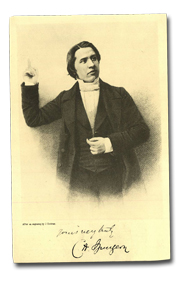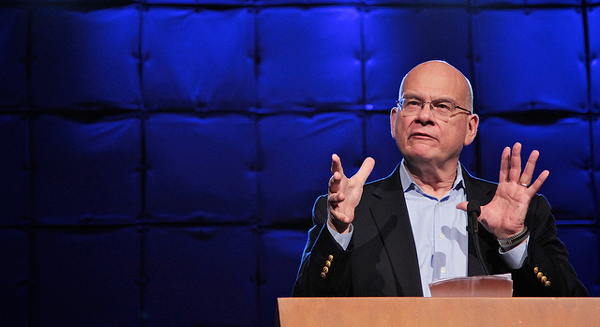 Steam shot from Charles Spurgeon’s ears at the mention of a preacher who neglected Christ. Christless sermons aggravated the Prince of Preachers as much as anything, and on this topic he produced some choice quotes for the ages.
Steam shot from Charles Spurgeon’s ears at the mention of a preacher who neglected Christ. Christless sermons aggravated the Prince of Preachers as much as anything, and on this topic he produced some choice quotes for the ages.
Here are six of my favorites.
The motto of all true servants of God must be, “We preach Christ; and him crucified.” A sermon without Christ in it is like a loaf of bread without any flour in it. No Christ in your sermon, sir? Then go home, and never preach again until you have something worth preaching. [Exposition of Acts 13:13-49 (1904)]
Leave Christ out? O my brethren, better leave the pulpit out altogether. If a man can preach one sermon without mentioning Christ’s name in it, it ought to be his last, certainly the last that any Christian ought to go to hear him preach. [Sermon, “A Prayer for the Church” (1867)]
Leave Christ out of the preaching and you shall do nothing. Only advertize it all over London, Mr. Baker, that you are making bread without flour; put it in every paper, “Bread without flour” and you may soon shut up your shop, for your customers will hurry off to other tradesmen. … A sermon without Christ as its beginning, middle, and end is a mistake in conception and a crime in execution. However grand the language it will be merely much-ado-about-nothing if Christ be not there. And I mean by Christ not merely his example and the ethical precepts of his teaching, but his atoning blood, his wondrous satisfaction made for human sin, and the grand doctrine of “believe and live.” [Sermon, “Christ the Glory of His People” (1868)]
Sooner by far would I go to a bare table, and eat from a wooden porringer something that would appease my appetite, than I would go to a well-spread table on which there was nothing to eat. Yes, it is Christ, Christ, Christ whom we have to preach; and if we leave him out, we leave out the very soul of the gospel. Christless sermons make merriment for hell. Christless preachers, Christless Sunday school teachers, Christless class leaders, Christless tract distributors—what are all these doing? They are simply setting the mill to grind without putting any grist into the hopper, all their labor is in vain. If you leave Jesus Christ out, you are simply beating the air, or going to war without any weapon with which you can smite the foe. [Sermon, “Why the Gospel is Hidden” (1866)]
I know one who said I was always on the old string, and he would come and hear me no more; but if I preached a sermon without Christ in it, he would come. Ah, he will never come while this tongue moves, for a sermon without Christ in it—a Christless sermon! A brook without water; a cloud without rain; a well which mocks the traveler; a tree twice dead, plucked up by the root; a sky without a sun; a night without a star. It were a realm of death—a place of mourning for angels and laughter for devils. O Christian, we must have Christ! Do see to it that every day when you wake you give a fresh savor of Christ upon you by contemplating his person. Live all the day, trying as much as lieth in you, to season your hearts with him, and then at night, lie down with him upon your tongue. [Sermon, “A Bundle of Myrrh” (1864)]
What was the subject? What was Peter preaching upon? He was preaching Christ and him crucified. No other subject ever does produce such effects as this. The Spirit of God bears no witness to Christless sermons. Leave Jesus out of your preaching, and the Holy Spirit will never come upon you. Why should he? Has he not come on purpose that he may testify of Christ? Did not Jesus say, “He shall glorify me: for he shall receive of mine, and shall shew it unto you”? Yes, the subject was Christ, and nothing but Christ, and such is the teaching which the Spirit of God will own. Be it ours never to wander from this central point: may we determine to know nothing among men but Christ and his cross. [Sermon, “The Mediator, Judge, and Savior” (1880)]

 Steam shot from Charles Spurgeon’s ears at the mention of a preacher who neglected Christ. Christless sermons aggravated the Prince of Preachers as much as anything, and on this topic he produced some choice quotes for the ages.
Steam shot from Charles Spurgeon’s ears at the mention of a preacher who neglected Christ. Christless sermons aggravated the Prince of Preachers as much as anything, and on this topic he produced some choice quotes for the ages.